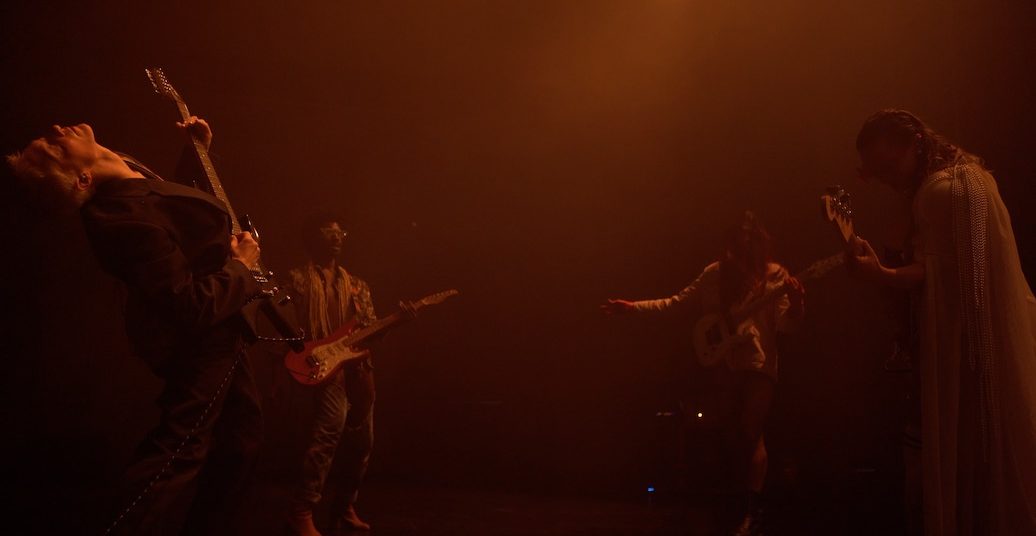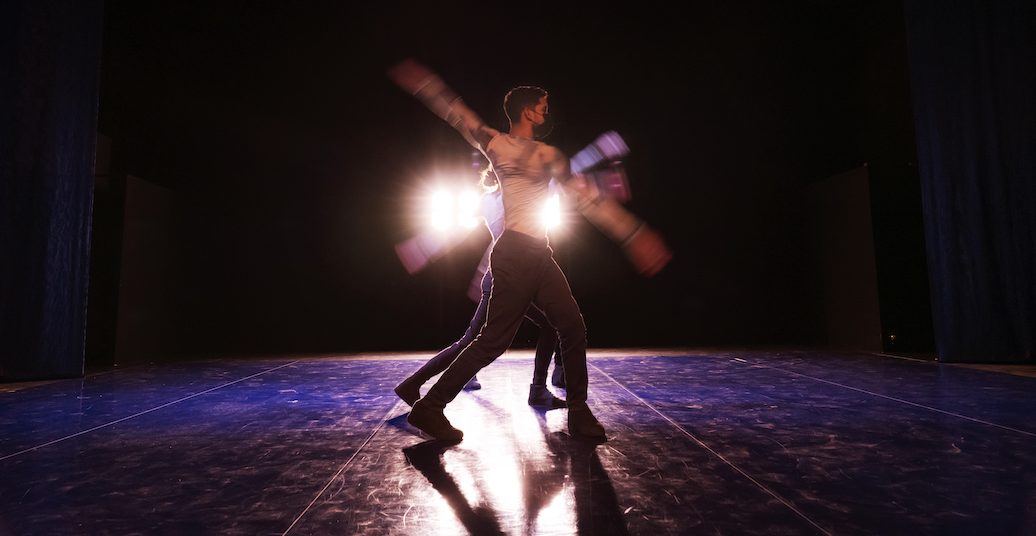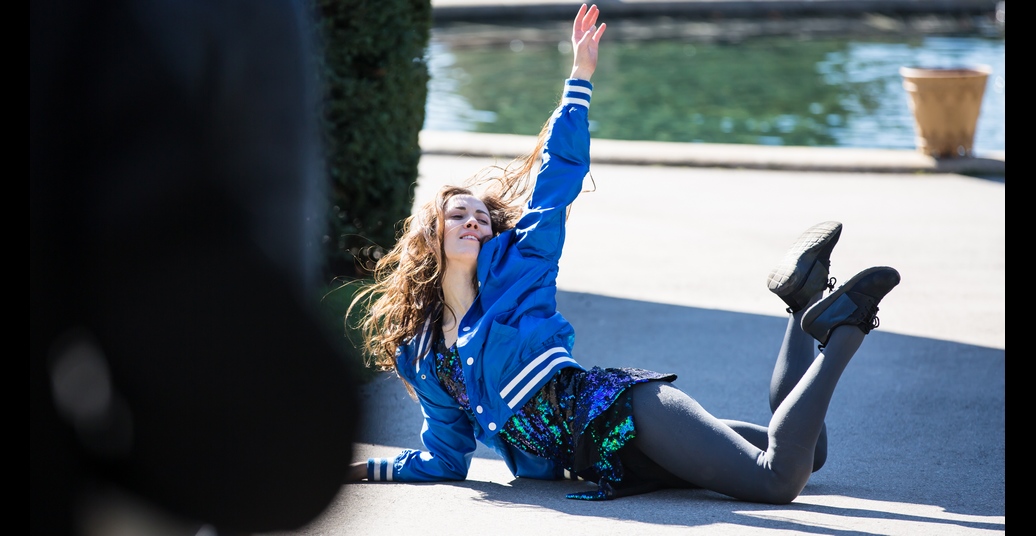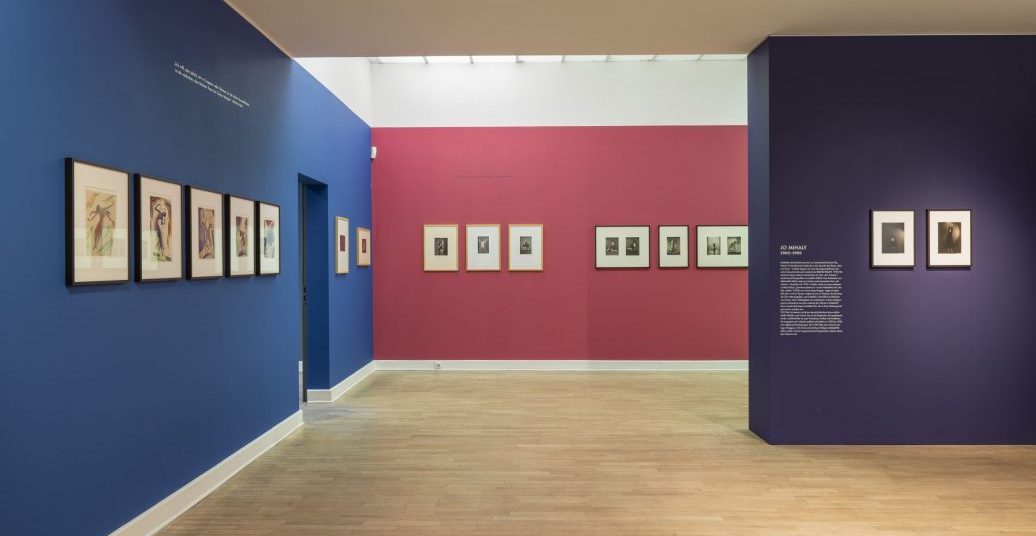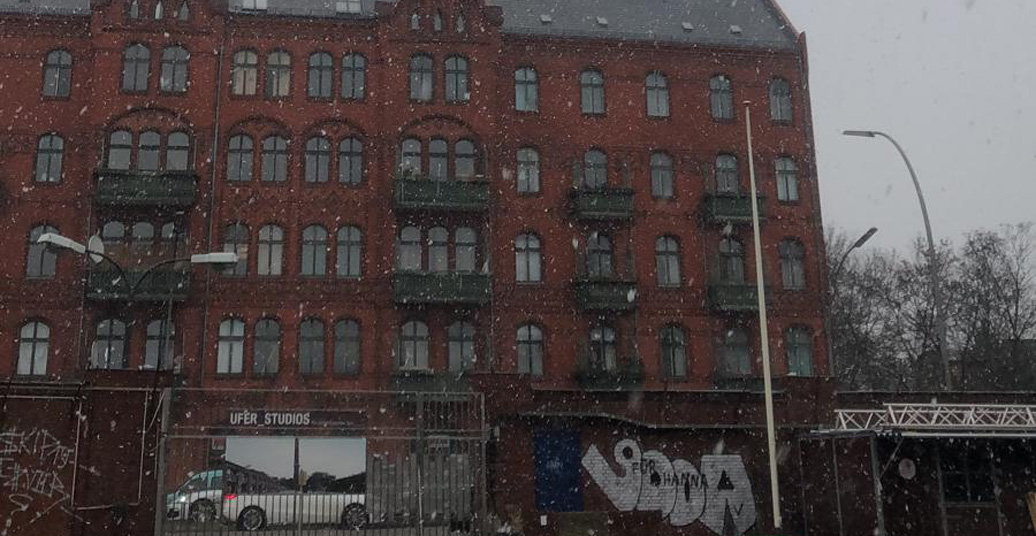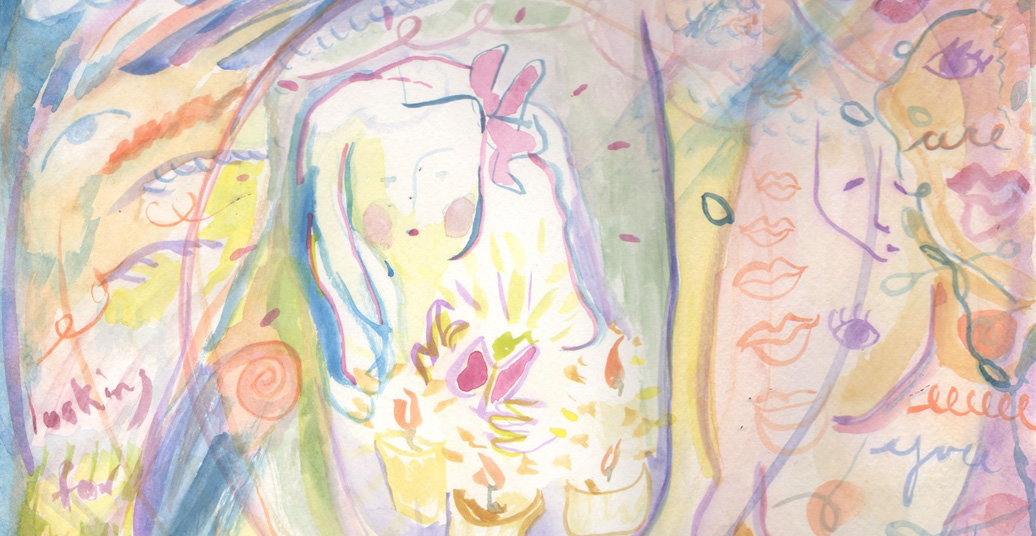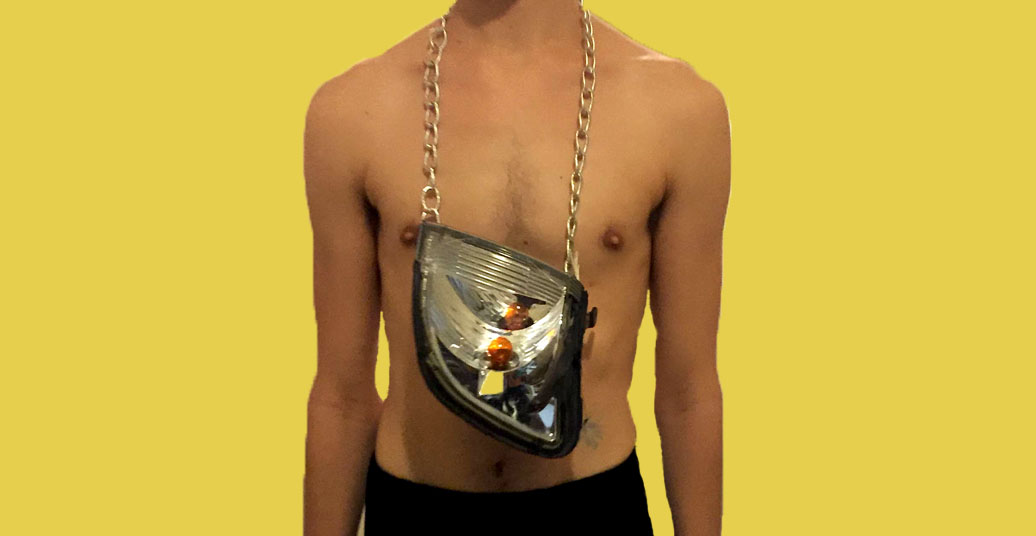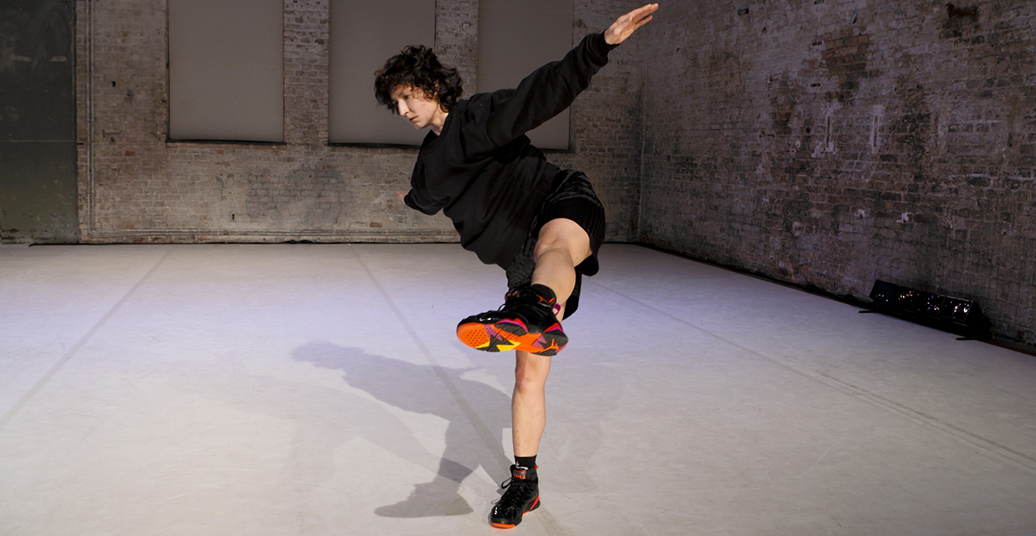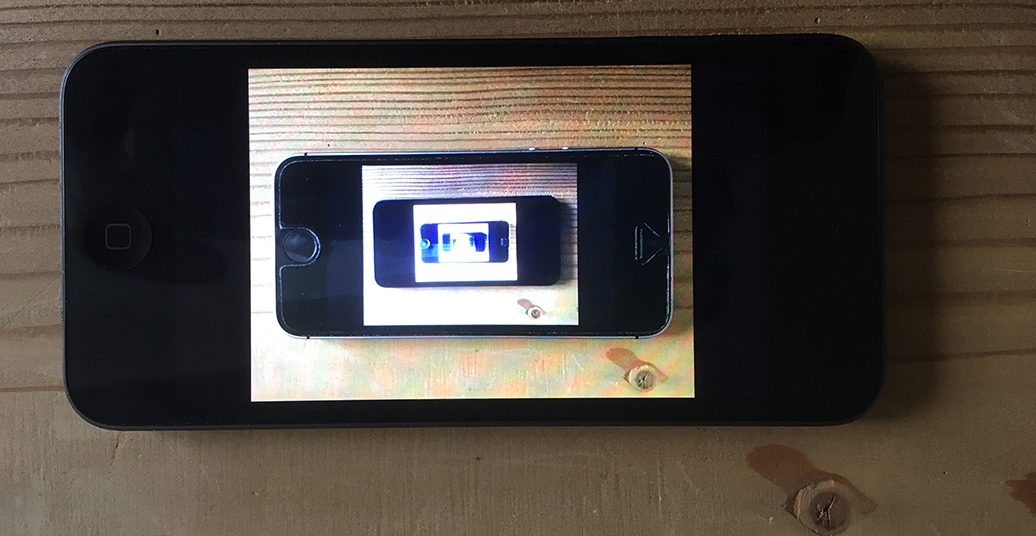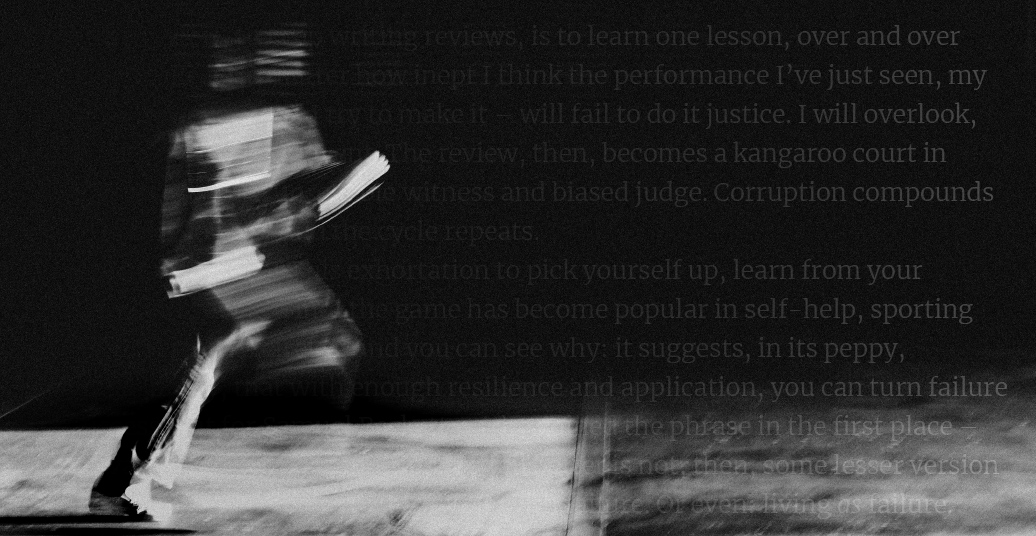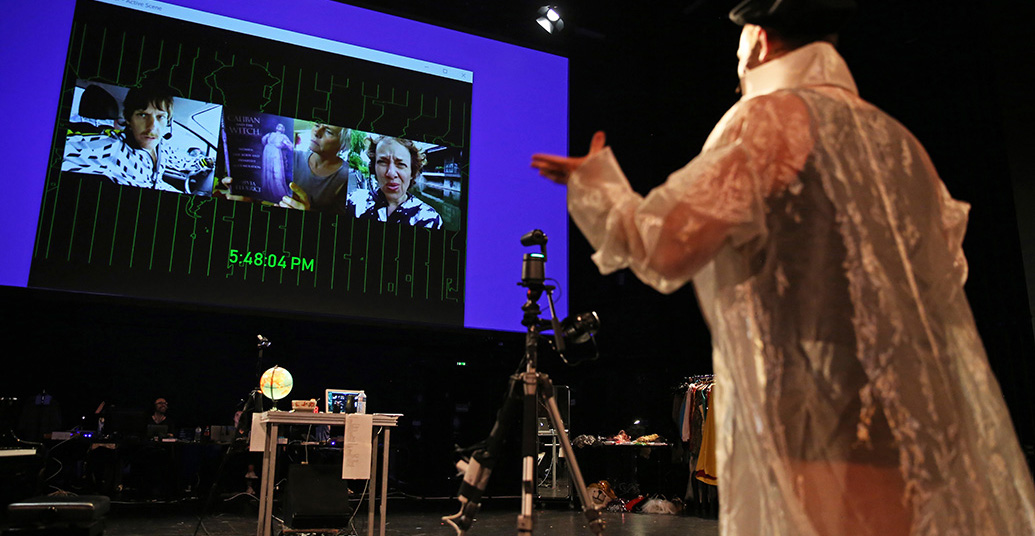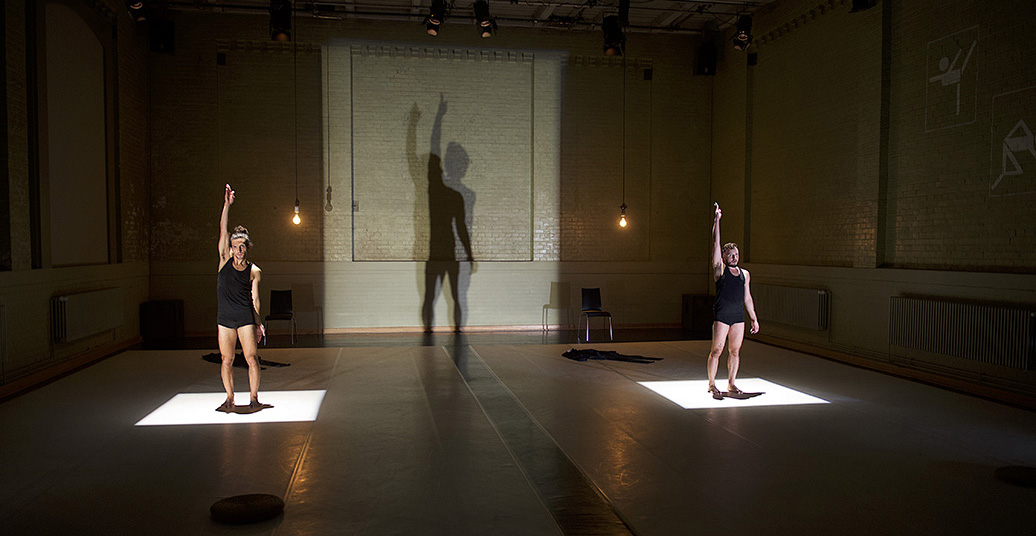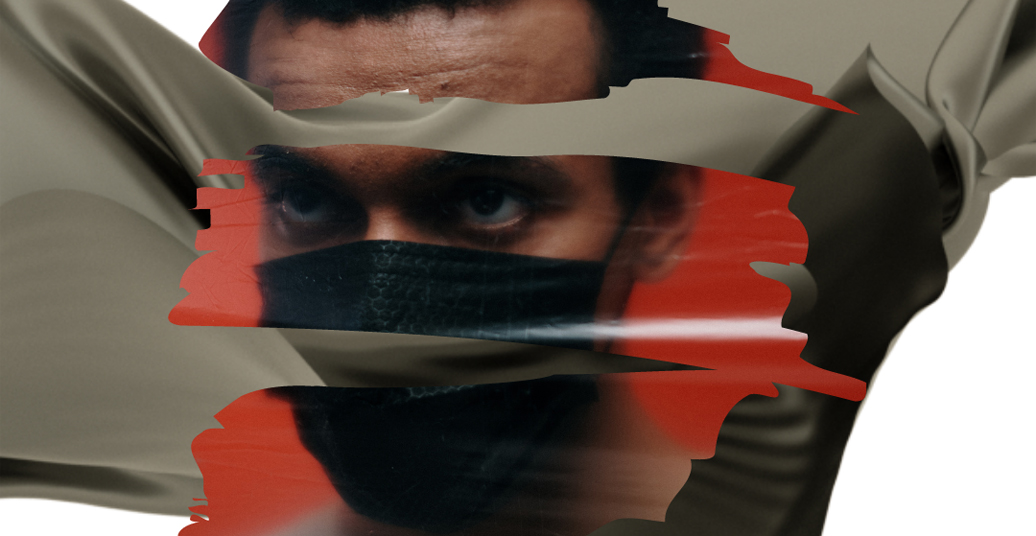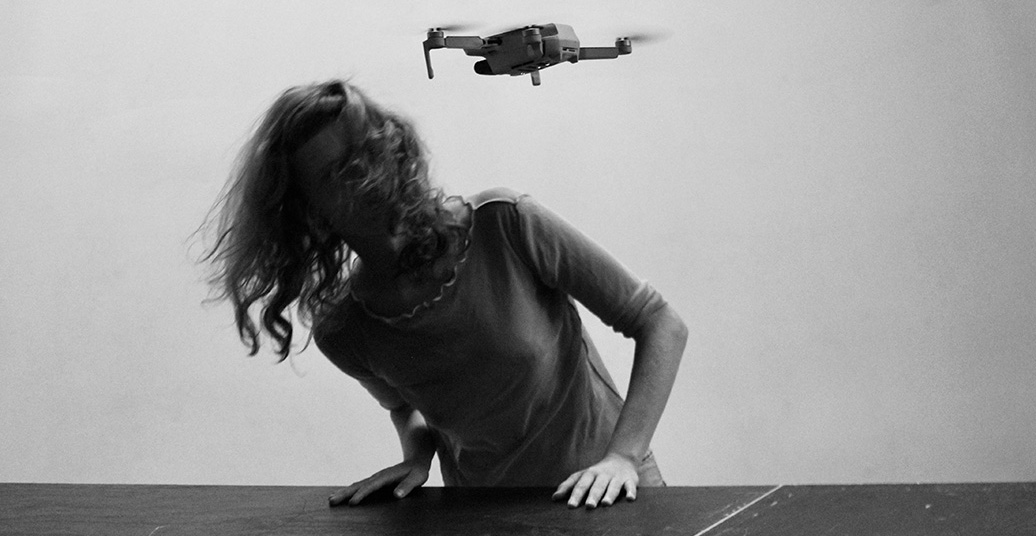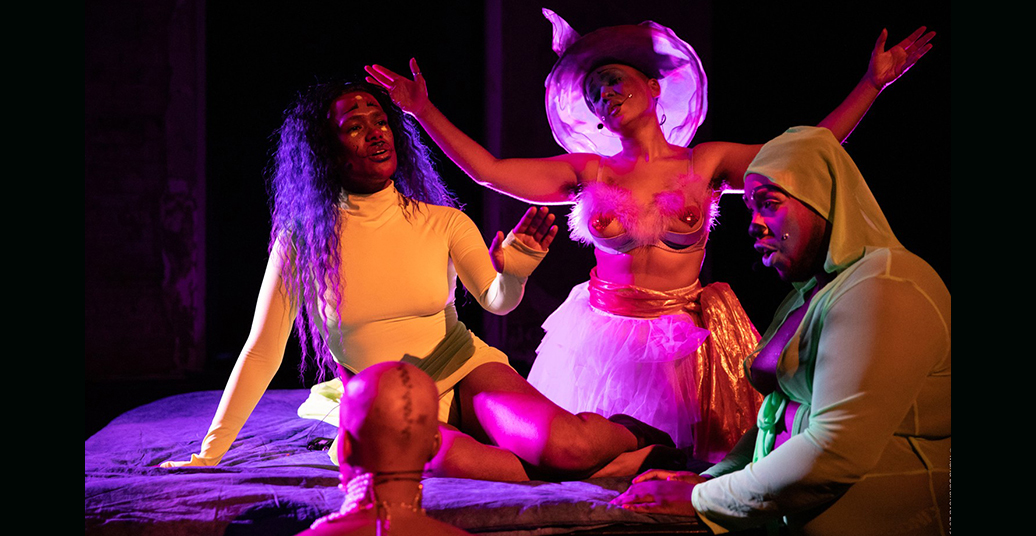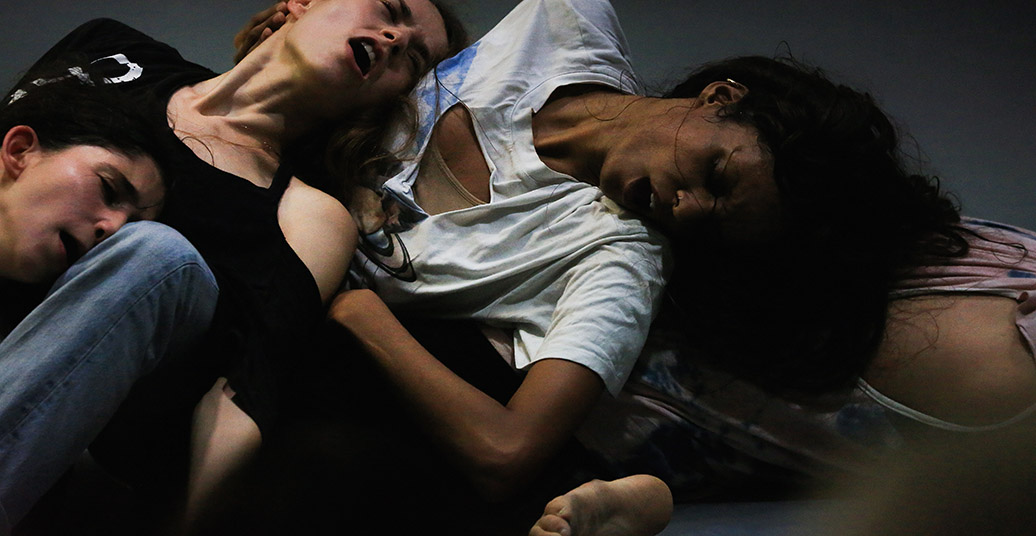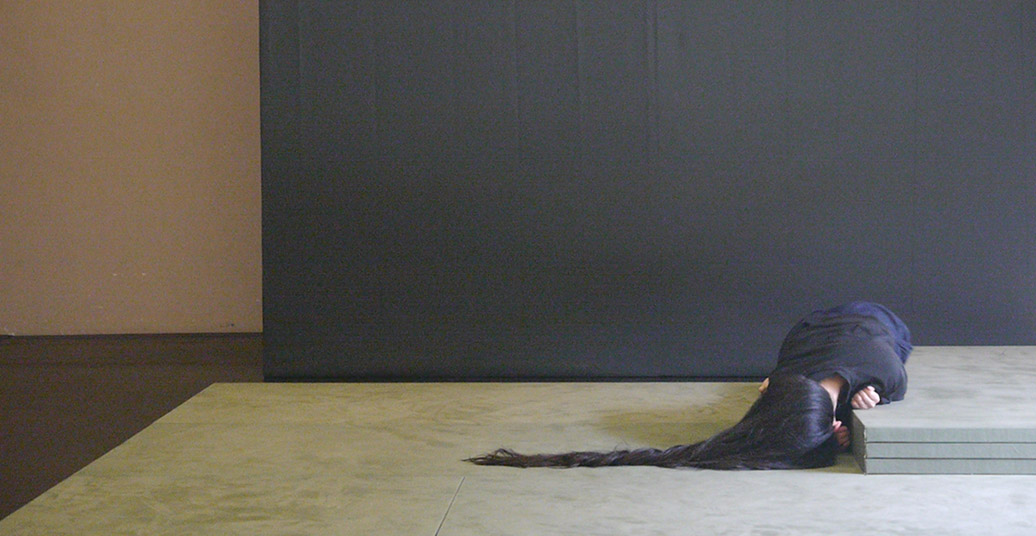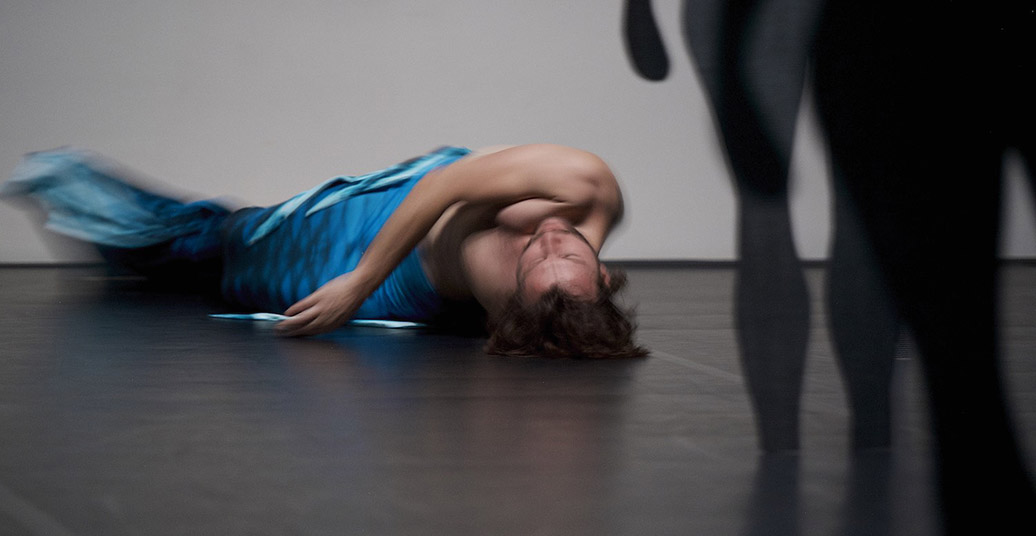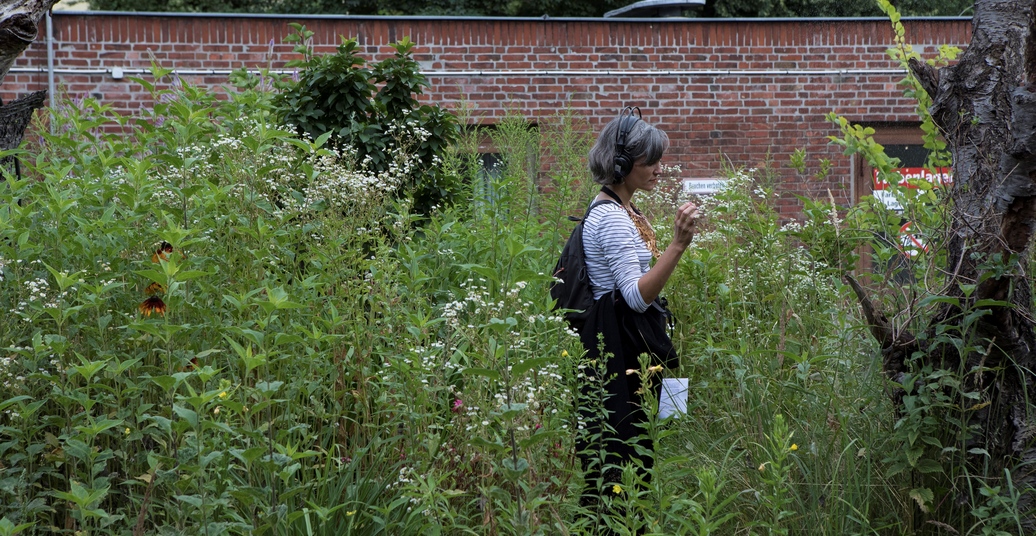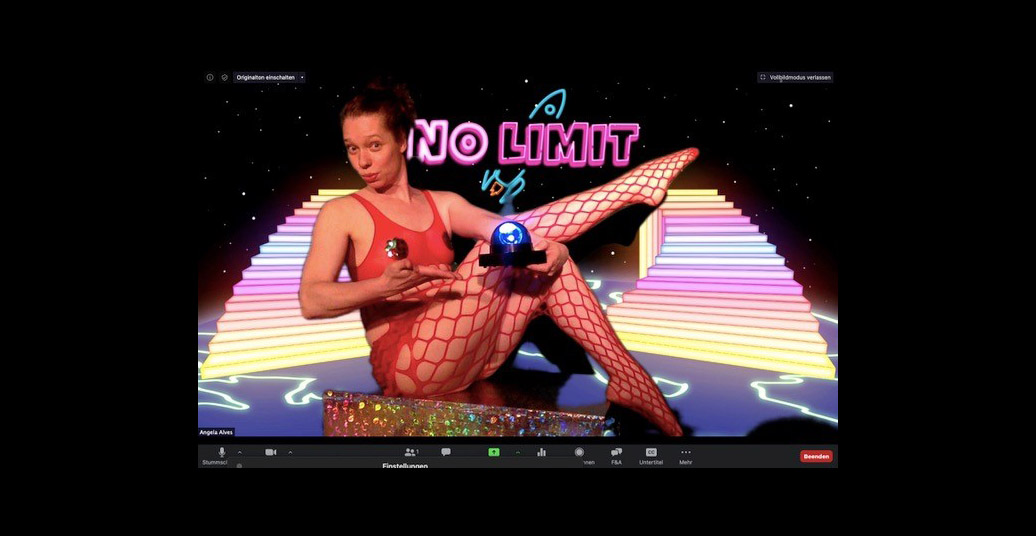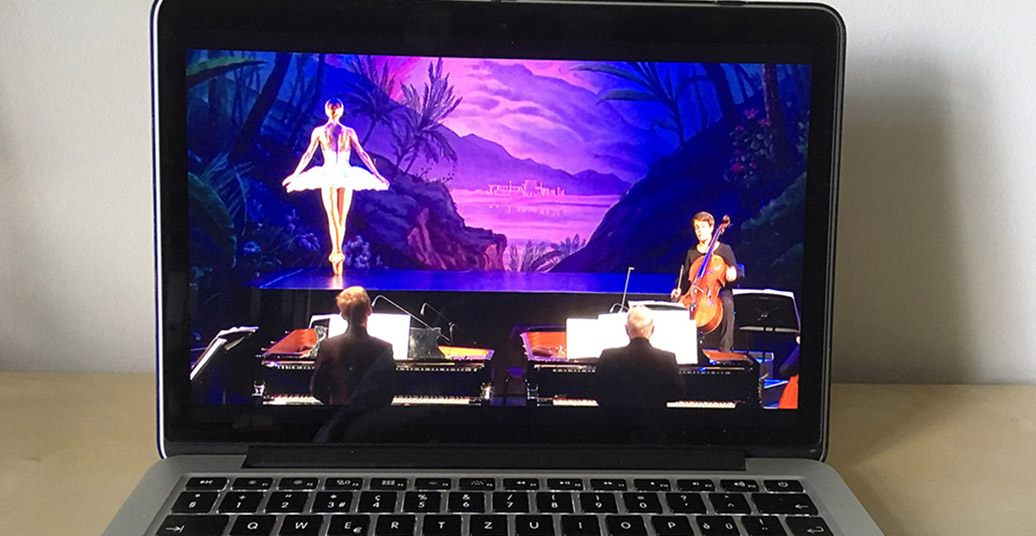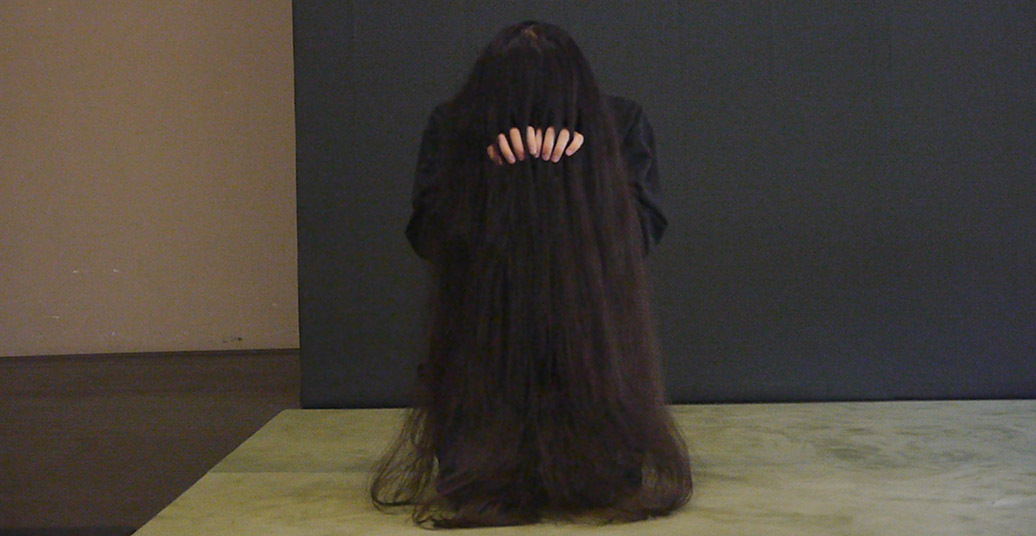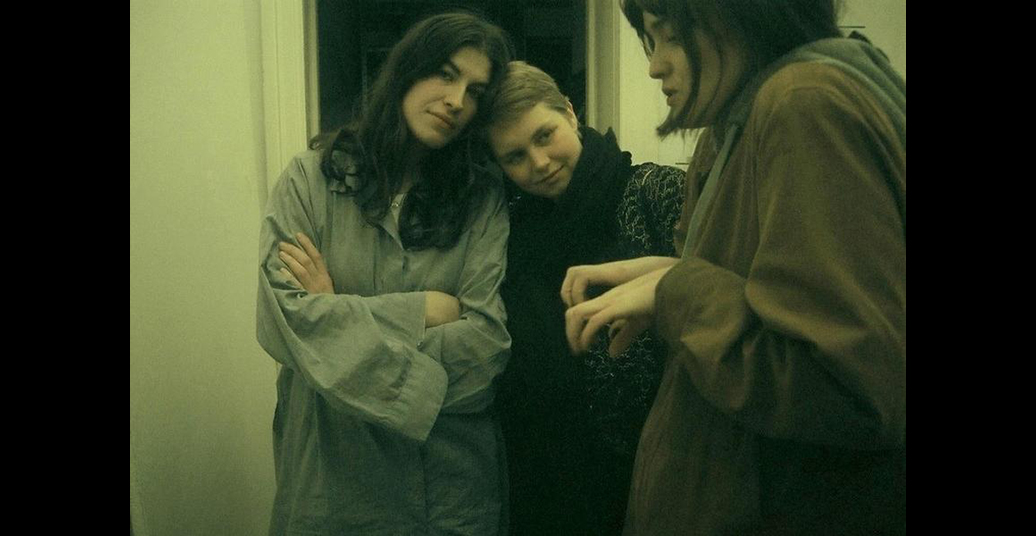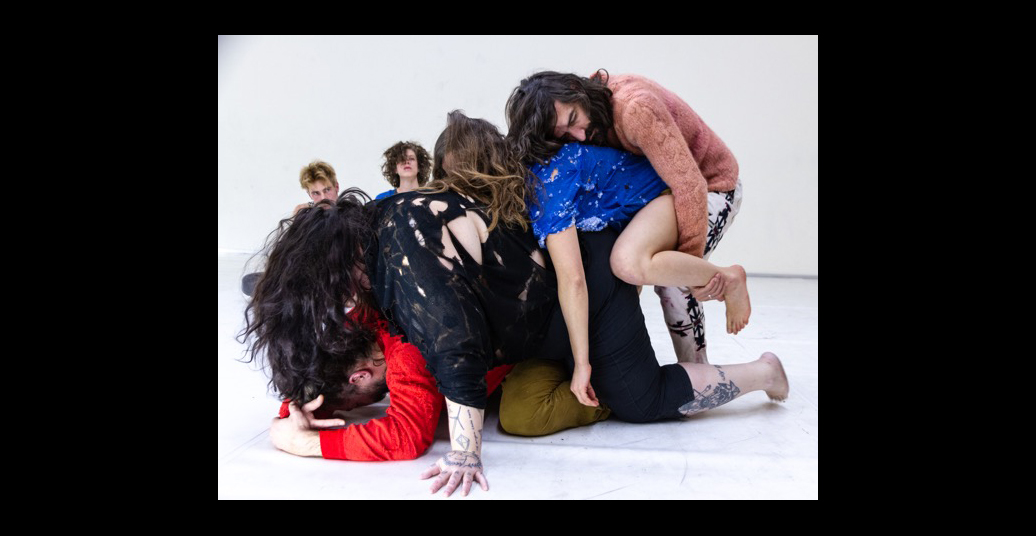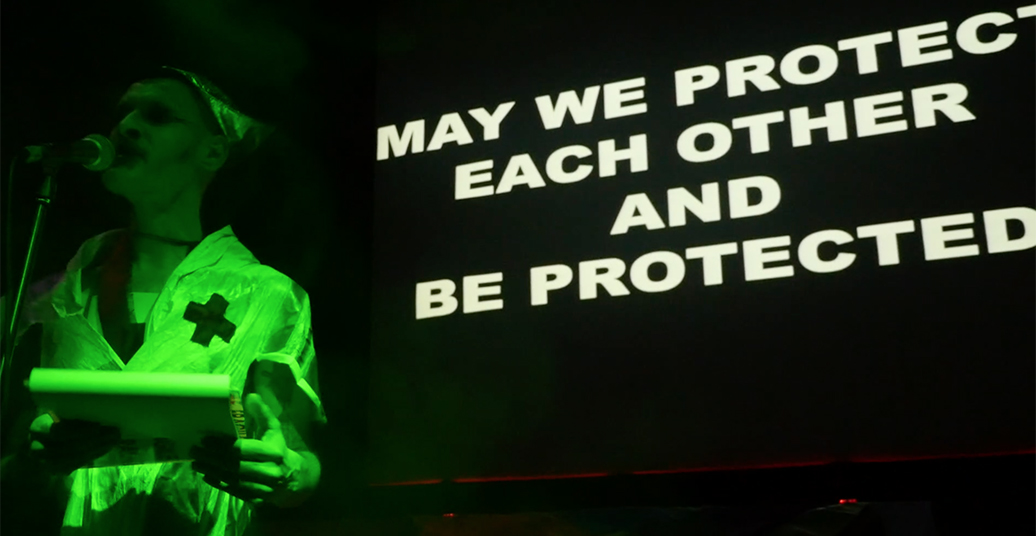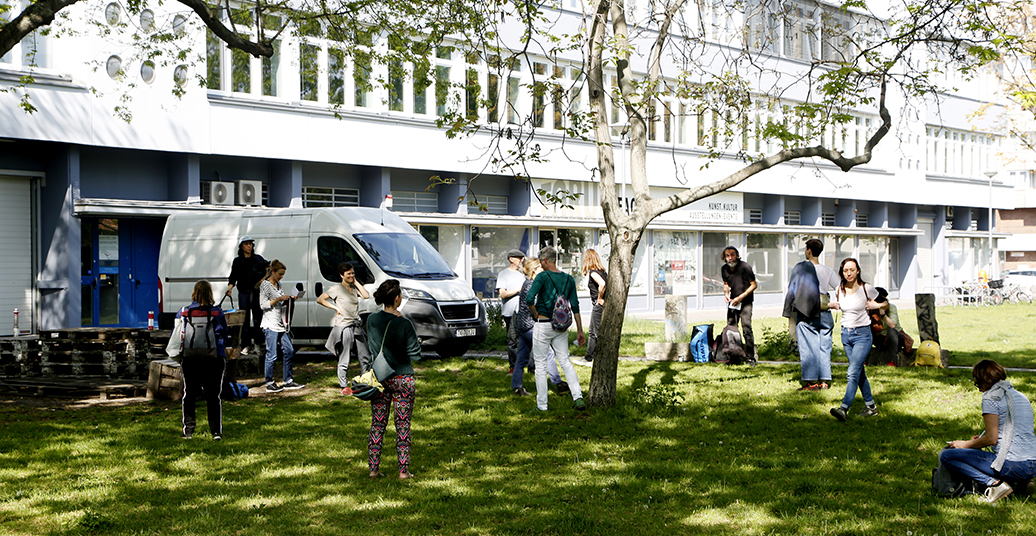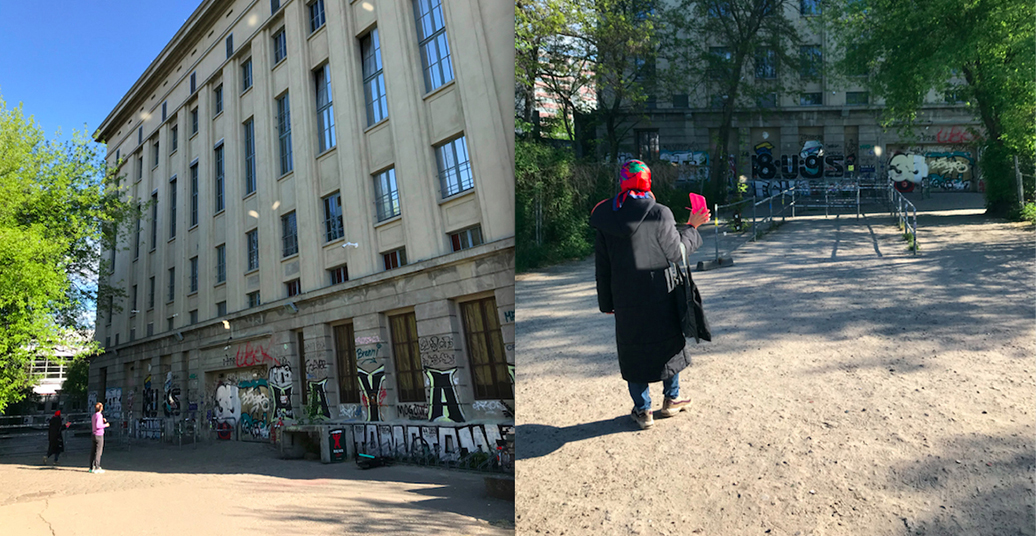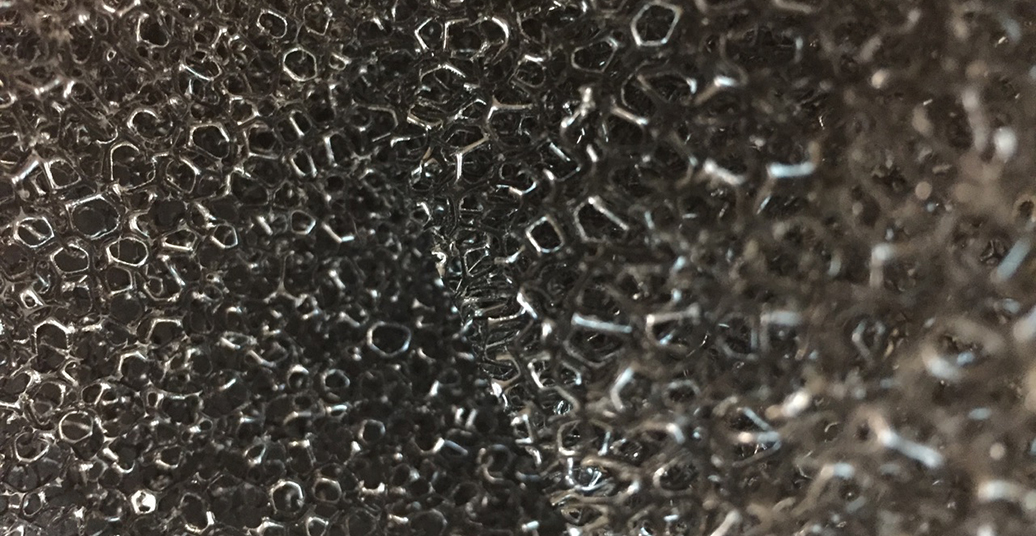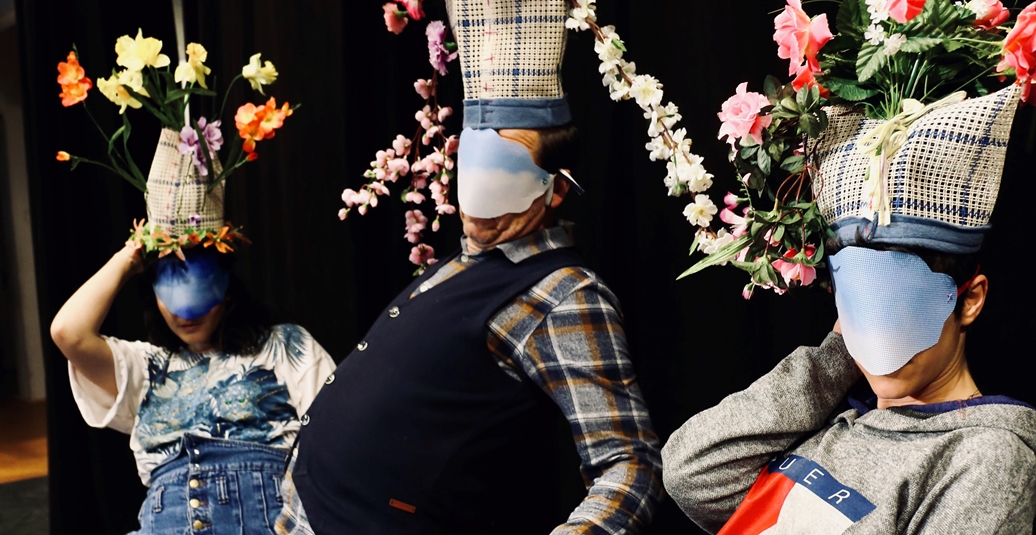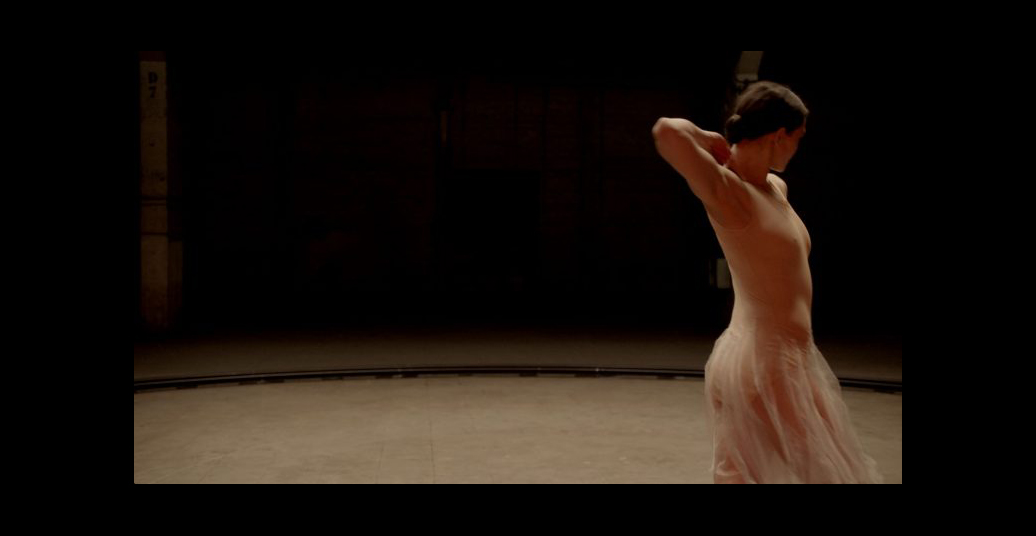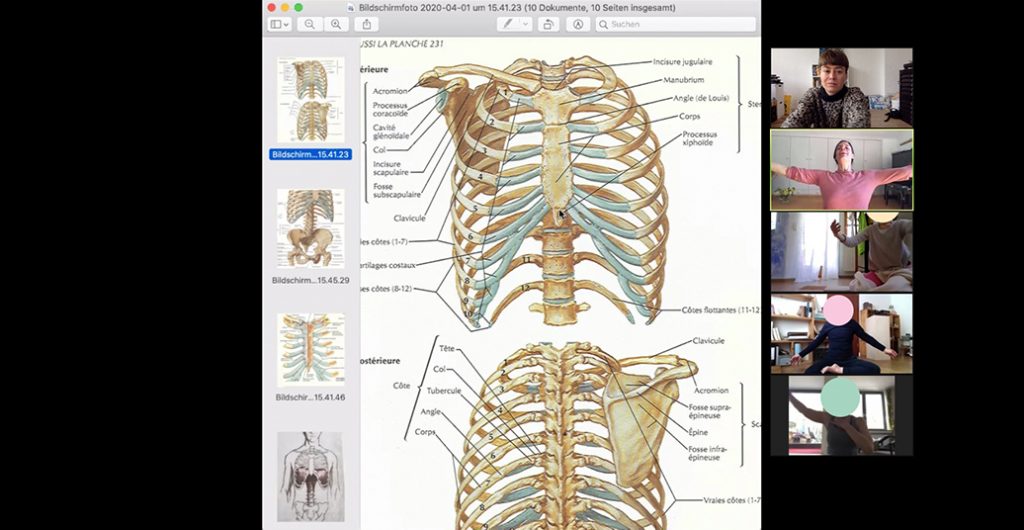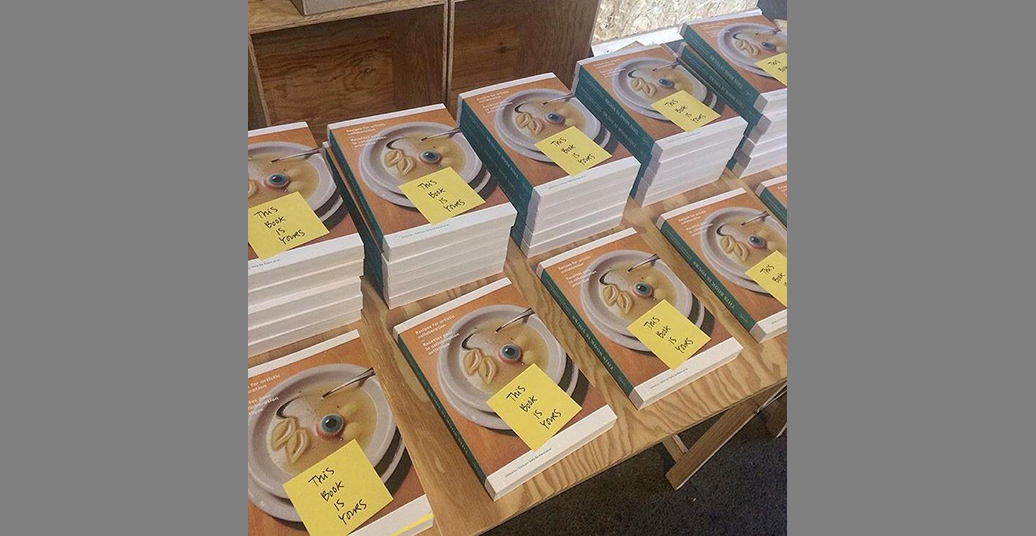Continue reading “Reveries at the Cusp”Showing as part of the online programme of Tanztage Berlin 2022, Layton Lachman and Samuel Hertz’s sonically-charged “DOOM (The Movie)” creates a world of catastrophe and creation. Parvathi Ramanathan steps into this world in a daze of delirious illness and imagination.
Tag: Corona Texts (EN)
Perpetual Motion Machine
Continue reading “Perpetual Motion Machine”Jasmin İhraç’s most recent show “liú” premiered on 15 March 2021 and was shown on HAU4 digital platform from 26 to 29 May during the Performing Arts Festival Berlin 2021. In her delicate exploration of the cycles and rhythms of nature and human life, İhraç avoids far-fetched claims and declarations and leaves the audience face to face with the miracle of the infinite time-loop. This laid-back and quiet show made me want to log these images and my thoughts, minute by minute.
To All Tomorrow’s (Open Air) Parties
Continue reading “To All Tomorrow’s (Open Air) Parties”“The Dying Swans Project”, conceptualised by Eric Gauthier and produced by Gauthier Dance / Dance Company Theaterhaus Stuttgart, is a screendance project involving international choreographers made during the second pandemic winter. In her video “all tomorrow’s parties”, Berlin-based choreographer Constanza Macras provides a fascinating perspective on a post-party mood as an awakening from the post-Covid-19 period. From another view, Meg Stuart and Damaged Goods interface through a poetic and touching screendance work for Haus der Kulturen der Welt.
The Dance Afterlife
Continue reading “The Dance Afterlife”On 23 April, the exhibit “The Absolute Dance. Female Dancers in the Weimar Republic” (April to August 2021) opened at the Georg Kolbe Museum in Berlin Westend with a preview for experts and journalists. Curated by Dr. Julia Wallner and Brygida Ochaim, the exhibit corresponds with the scenographic design and the work “Blaue und Gelbe Schatten (Blue and Yellow Shadows)“ by Ulla von Brandenburg.
Monologue to Dance
Inky Lee creates an immersive sound monologue that addresses dance.
Continue reading “Monologue to Dance”Collage of Loneness
The Corona pandemic provided some people more time to be alone. Sometimes, this may mean sitting with oneself without external distractions. Inky Lee, who lives alone, is one of these people. One night, she quietly sits in this state and observes the movements of her insides.
Continue reading “Collage of Loneness”Crumb Drawers
When the possibility of meeting and touching people has been restricted due to the Corona pandemic, Inky Lee reflects on physical intimacy.
Continue reading “Crumb Drawers”Moving Puzzle
When movement has been restricted due to the Corona pandemic, Inky Lee travels in her room.
Continue reading “Moving Puzzle”The Expansion of Joy — An Interview with Anna Nowicka
‘Dear Anna, I hope you are well! […] Due to this second lockdown, we cannot review any performances in the theatres anymore. As an alternative, I would like to interview you on the topic of ‘bodily joy’. It comes from my realisation that, due to the distance, the lack of spontaneity, and the absence of live get-togethers, I find it hard to experience joy in my body myself. And it’s a loss. Therefore it would be great to talk to you about how to keep finding joy in the body in these awkward times. […]. Best, Annette’
Continue reading “The Expansion of Joy — An Interview with Anna Nowicka”What about a Time Warp Dance?
Here we are sitting in the mid of the second wave, and with the year and my contribution as a tanzschreiber drawing to a close, I would like to make a few reflections on dance/performing arts in this forced digitalization time. The longer we are sitting at home in some degree of lock-down, the deeper the influence is going to last. If on the positive pole, it has been an eye-opening experience connecting people in different geographical location and calling for a rethinking of the approaches to dance, on the down side, most of us crave touch or a stable (economic/working) environment. At this point, I want to look closer at three elements of dance production — creation, aesthetics and fruition — for a sort of time warp on the future of dance, also dance education.
Continue reading “What about a Time Warp Dance?”Life sentences: on reviewing and renewing
As a keynote text for the “Why criticism?” debates to be presented by tanzschreiber and streamed online by Radialsystem in Berlin, Sanjoy Roy recounts how the current pandemic has led him to reflect on reviewing, to find renewed value in (a)live performance – and to search for the life within writing
Continue reading “Life sentences: on reviewing and renewing”Thoughts on Lockdown No. 2
Continue reading “Thoughts on Lockdown No. 2”Gob Squad first presented their 12 hour livestream performance “Show Me A Good Time” during the lockdown in June. For the second lockdown, they remade the piece into three parts, and HAU broadcast the first episode on 26 November 2020. I decided to use it as an opportunity to reflect on this latest closure of live performance venues.
Together Together
Continue reading “Together Together”“isson – a solo for two men” by cie. toula limnaios has a transformative history. Already in 2003, the performance, then called “isson – a solo for two women”, had its premiere. For its 20th anniversary in 2016, it was restaged with two men, and then remained in the repertoire. Leonardo d’Aquino and Alessio Scandale were supposed to dance it live again this November, but due to the current lockdown, it was presented online instead, broadcast from the Halle Tanzbühne Berlin, and remains available for viewing until 28 November.
Veiled Motions
Rhea Ramjohn* reflects on the metaphorical and physical masks that shape our day-to-day movements and interactions. The “performance” of creating space for one another during the Covid-19 pandemic has brought physical distancing to the forefront, and has exposed what many marginalised people have long-known as the pandemic of being othered.
Continue reading “Veiled Motions”Oceanic Rushing
Continue reading “Oceanic Rushing”On 14/15 November 2020, Josefine Mühle is showing a video work on the ada Studio website as a teaser to the performance “LOTUS. the child was stung”, which has been postponed until next year. In this video work, she weaves aspects of prenatal psychology with our own fantasies into a lush dream landscape.
The Politics of Rest
Continue reading “The Politics of Rest”Covid is stirring hard again. Due to corona precautions, the performance “Black Power Naps / Choir of the Slain (Part XX)” by artists and activists Fannie Sosa and Navild Acosta at the Sophiensæle needed to be cancelled. As an alternative, a live-stream was made available.
Everyone drops, but no one falls.
Continue reading “Everyone drops, but no one falls.”As a finale to her four-day workshop, “Practicing Empathy”, Yasmeen Godder is showing her eponymous piece – a group ritual, which shows us that we must now urgently consider what empathy might mean – during the SUBMERGE Festival at Lake Studios Berlin.
Minimal Movements: Isabelle Schad’s “FUR”
Continue reading “Minimal Movements: Isabelle Schad’s “FUR””Sometimes you come across pieces that simply leave you speechless. Not because they passed us by and failed to move us. But because they touched us deeply. Regardless, I want to attempt to give an account of Isabelle Schad’s “FUR”. The showings with Aya Toraiwa were on 31 July and 1 August 2020 at the Wiesenburg-Halle.
The Human in Trans-Humanity
Continue reading “The Human in Trans-Humanity”The first post-lockdown indoor performance at Uferstudios was the premiere of “Transhuman Hai” by Porson’s Khashoggi, 24 July 2020. This performance on the possibilities of artificial humanity fit well into Studio 1, which resembles an indoor swimming pool with the audience seated looking into the deep-end.
A PROPOSAL FOR CHANGE
Continue reading “A PROPOSAL FOR CHANGE”Tanzfabrik’s Time to Meet: Down to Earth — a festival as an experiment — was curated by Juan Gabriel Harcha, Elisabeth Leopold, and Felicitas Zeeden and offered a playground for artists to unlock our imaginations in the courtyard of Uferstudios.
A Utopia Beyond the Norm and Anti-Norm
In a garish tutti frutti aesthetic, Angela Alves’ “NO LIMIT” (Zoom premiere 16 June 2020 at Sophiensæle) stages a distorted world in which the handicapped make up the normative majority and the unhandicapped suffer from syndromes like CCD (Can’t Calm Down) and KNL (Knows No Limits). The game show provides us with a lesson in accessibility without lecturing us.
Pre corona days, I wouldn’t have watched “NO LIMIT”. I would’ve been home in bed with a freshly operated on, swollen knee that I couldn’t bend and that had to be cooled and elevated – and I would’ve watched something uninspired on Netflix. I wouldn’t have subjected myself to the effort of hobbling to the Sophiensæle and having to sit still for an hour with a constant twitch in my knee.
For a while now, the Sophiensæle has been offering so-called “Relaxed Performances”, which are intended to offer greater inclusivity in a casual atmosphere. You’re allowed to go in and out, to talk quietly, and to move around. That would make Angela Alves’ “NO LIMIT” a hyper-relaxed performance since the show wasn’t performed live as planned, but rather in the virtual realm with the help of Zoom. And it is precisely this aspect of the digital that permitted me – temporarily immobilized – access.
As the cool pack rests on my elevated knee, “NO LIMIT” begins. The show, staged in a garish nineties aesthetic, aims to create the greatest possible level of accessibility for viewers. Its rhythm is determined by translation aids, arranged in parallel, in the form of audio descriptions, sign language, subtitles and the option to have the descriptions read out loud in a chat room by a screen reader. The pauses that arise, translation cuts and duplications and the resulting decelerated tempo, sometimes make those of us unhandicapped, with our efficiency thinking, impatient. And they make quite clear that our expectations of how best to use time productively and efficiently are extremely questionable and egocentric. That is why all the performers leave plenty of time for their introductions. The sign language translator, Gal, the deaf moderator, Athina, the narrator, Simone, the dancer (and artistic director of the show), Angela, the musician, Christoph all describe in great detail how they look and their settings. Their garishly colored retro costumes, starry-sky backdrop, and the rainbow stairs are obviously invoking the parody RTL show “Tutti Frutti”from the early 90s – and “Tutti Frutti for All” is what today’s invitation to “NO LIMIT” promises. It takes on an interactive show element; a questionnaire where we can share – but are not obligated to – whether we have e.g. a disability, whether we’re part of the norm, or whether we know what a crip is – namely, a community of people that feels like it belongs to a discriminated minority.
The actual main part of the show clarifies what it’s all about. During a talk show sequence in which Angela Alves, the personified representative of the minority of unhandicapped people, is interviewed by Athina, we discover: people without disabilities would have a harder time here if we didn’t join in solidarity to ensure their inclusion. Because it’s the handicapped community that defines the norms here. But Angela doesn’t want to be included. She calls for empathy, the recognition of her unique individual maladies (CCD, KNL), and needs. She immediately gets sympathy for her lamentable minority status: Athina refers to it as “diversity aid”. And how does she dance despite her lack of handicap? But then Angela gets cut off… No one really wants to know the answer.
Towards the end of the show, as Angela, Athina, and Gal perform a kind of senseless sign language choreography in three Zoom windows, a choreography that becomes evermore chaotic, Simone’s linguistic translation reaches its limits. And it hits me: this is not about me –handicapped or unhandicapped – being able to follow everything. Instead it’s about a dedicated serenity that cares less about definitions of inclusion and more about a constant renegotiation of our social norms. Especially now.
“NO LIMIT” by Angela Alves will be performed once again tonight, 18 June 2020, at 8pm in the Sophiensæle. Duration: 75 minutes. Participation via Zoom. You can get a personalized access link to the webinar with pre-registration (ticket price: 5 euros).
“NO LIMIT”, premiere 16 June 2020, Sophiensæle Berlin — Artistic director, choreography, performance: Angela Alves — dramaturgy: Alexandra Hennig — performance, choreography: Athina Lange — performance, sign language translator, choreography: Gal Naor (The progressive wave) — performance, audio description: Simone Detig — sound, performance: Christoph Rothmeier — set design: Philippe Krueger
English translation by Melissa Maldonado
Back to the Classics
Continue reading “Back to the Classics”Event cancellations due to Covid-19 measures didn’t just affect the dance scene. How did major theaters respond during the pandemic? A brief glimpse at the Staatsballett Berlin to mark Polina Semionova’s appearance in the concert performance of Camille Saint-Saëns’ “The Carnival of the Animals” at the Staatsoper Unter den Linden.
On Bodies Communing: An Interview with Isabelle Schad
Continue reading “On Bodies Communing: An Interview with Isabelle Schad”The plan was for Isabelle Schad’s trilogy “Collective Jumps“, “Pieces and Elements” and “Reflection” to be shown for the first time in one stretch at HAU Hebbel am Ufer in June. She talks with Jette Büchsenschütz about contemplation, the collective, and the power emanating from interlocking bodies – and it becomes evident how relevant her pieces are today.
Nah Dran – interconnecting the studio and the screen
Continue reading “Nah Dran – interconnecting the studio and the screen”NAH DRAN — ‘close by’, ‘proximate’, ‘intimate’. Attending this research series, existing through the continuous investment of ada Studio in young, Berlin-based choreographers, usually means gathering in the small studio number 7 at Uferstudios. As an audience member, you are almost close enough to touch the performers. This time, however, it’s different. There is no physical proximity, there is only the online medium.
Berlin isn’t a German city / Berlin ist keine deutsche Stadt
Continue reading “Berlin isn’t a German city / Berlin ist keine deutsche Stadt”No shows, no training, no touch, no perspectives: Covid-19-measures hit the dance scene heavily. Artists and institutions are longing for solidarity – beyond their own needs.
You OK, Bitch?
Continue reading “You OK, Bitch?”The Battlefield Nurse has existed for over 5,000 years. She is a hooker, healer, sister, lover, mother, and a midwife of the dying. Together with an army of other battlefield nurses, she cares critically, by addressing the structures that make us sick. In the online performance “You OK Bitch?” choreographer Jeremy Wade’s alter ego aims to unpack the Covid-complicated now.
City Expansion — (Out)Stretching the Senses to Our Urban Surroundings
Continue reading “City Expansion — (Out)Stretching the Senses to Our Urban Surroundings”After days of being homebound, practice lab EINS from Sabine Zahn’s project “Stadterweitern (City Expansion)” gave me a chance to rediscover my senses (and with them a piece of Berlin). During the first of four five-day labs to take place in different central locations in Berlin from May to November 2020, I had the opportunity to experience Ernst-Reuter-Platz close up. Lab EINS also included a performance lecture and a discussion.
Against Translation?
Continue reading “Against Translation?”On the opportunities for performance art in the age of the contact ban and why the shuttering of theaters can also be seen as an opportunity. Reflections on the festival “Reclaiming the live aspect of the Performing Arts in the current times” initiated by Felix M. Ott and Diego Agulló and supported by Tanzfabrik Berlin
My Only Memory; A Choreography to Listen To
Continue reading “My Only Memory; A Choreography to Listen To”“My Only Memory”, by Juan Dominguez and performed by Joshua Rutter, premiered in 2018, and has now been transformed into an online performance for Radialsystem’s series “New Empathies”. This choreographed text is a brave attempt to create collectivity and practice empathy in times of physical distancing.
HOW ARE YOU?
Continue reading “HOW ARE YOU?”“Von hier nach dort” didn’t premiere on April 23 in fabrik Potsdam as planned. When the news came in that the show was going to be cancelled, André Lewski, Lee Méir, Robert Konderosi, Lidy Mouw, and Lea Kieffer were already in the last phase of preparing this participatory project for kids on the topic of farewell and death. I had planned to see and review the work. Instead, I’m having a Jitsi conversation with Lee, André, and Lea.
Another Kind of Kinesthetic Empathy Is Transmitted on Screen
Continue reading “Another Kind of Kinesthetic Empathy Is Transmitted on Screen”In the times of corona, when live dance events are (still) not possible, the digital format remains. You can love it or leave it, and not everything is suitable for filming. However, there are dance films, films explicitly choreographed for the camera and the screen: available for viewing until 6 May in POOL 20 – Spring Edition of the Internationales TanzFilmFestival Berlin at DOCK 11 online.
Distance Dance
Continue reading “Distance Dance”The wide offer of online dance classes demonstrates how we can all stay connected to one another despite social distancing while dancing alone. On the complex interplay between closeness and distance in the time of Corona.
On Hospitality, Collaborations and Dining Culture: Questions for Sally De Kunst about the Book “This Book is Yours”
Continue reading “On Hospitality, Collaborations and Dining Culture: Questions for Sally De Kunst about the Book “This Book is Yours””On 21 March 2020, Sally De Kunst was scheduled to present the book “This Book is Yours – Recipes for Artistic Collaboration” at the Berlin office of Vexer Publishing House with a cooking workshop. Like many things in Berlin and worldwide, this event – a collaboration with Tanzbüro Berlin – could not take place. So I invited Sally De Kunst to respond over Skype to a few questions about this unusual recipe book on cooking and artistic collaborations. I found it particularly relevant at this current point in time as we’re spending a lot of time at home – probably also cooking – and gaining a greater awareness during this period of isolation for how very much our way of life depends on collaborations.

